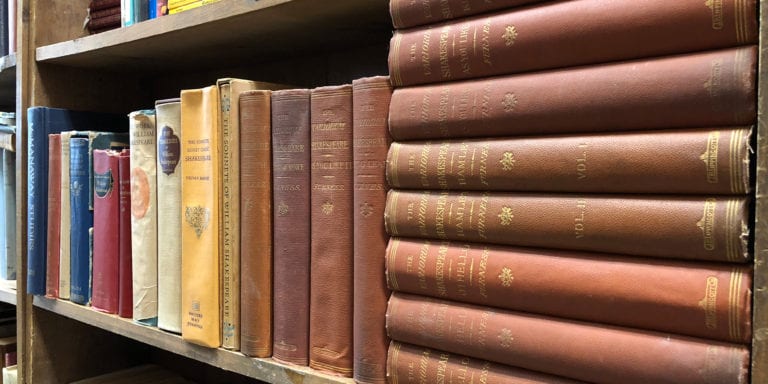
Long, long ago when the bookstore was very young, the Young Bookseller always worked alone. The customers were rare. The books were not. But there was always work to be done. There were books to be shelved. And before shelving, each book had to have a carefully penciled price written inside. What would be a fair price for this? The bookseller would lift the book and turn it in his hands. He would search all sides for flaws or assets in each book. Then it would be opened to its title page and the title page’s other side—the copyright page.
What would be a fair price for this?
“Hmm…two fifty? Four fifty? Seven fifty? Fifteen dollars?”
When he had decided, he would gently scratch on a price with a dull pencil cramped in his left hand. Always it was written in the same place. That place was the upper right-hand corner of the first page you come to when you lift a book’s cover. That page is usually blank. It is called the “front free endpaper.” Now if that page is colored or has printing on it, he would move on until a light one appeared. Below the numbers which meant “dollars and cents” a single letter was penciled in.
That letter was a secret code, and only the bookseller knew what it meant. The secret code was G A L S W O R T H Y. What did Galsworthy mean? It was a date code. A “G” meant the book was priced in the first six months the shop had been open. “A” stood for the shop’s second six months in business. “L” was twelve to eighteen months. And so on…
His mentor, the Old Bookman, had taught him this during his apprenticeship.
“You should know how long a book has been on your shelf! If it lingers there too long, then there is something amiss. Your price may be too high. Perhaps it is a book no one wants.”
Or it may be that the right person has not yet come in to find it, the Young Bookseller thought.
So, if all the new old books were priced with the pencil, they still needed to be shelved in just the right spot.
Then, if all the new old books were shelved, the books that were on the shelves always needed to be straightened. Some books were pushed too far back. Some books stuck out too far forward.
The Young Bookseller would slide the books in or out so all the books on the shelf were level with one another.
He would often find books that had strayed while he was doing this.
“I certainly did not place this book here. It belongs over there!”
Perhaps sometimes customers would pick up a book in one part of the store and then change their minds. Forgetting where they had found it, they would slip them onto just any shelf nearby.
But it happened so often he began to suspect that some of the books would move themselves in the night. When the shop closed and the lights were switched off, the shelves were only lit by the moon and starlight filtering in through the windows.
Sometimes the Young Bookseller would sneak back after locking the door and try to catch the books at their mischief. Perhaps they heard the key turning in the lock. Or maybe one the books at the front counter was lookout!
“Mr Van Allen Bradley’s book is always there. The Mandeville’s is too. I wonder if one of them warns the others that I am coming back?”
No matter how quiet and carefully he snuck back, never was a book to be found in motion.
BUT…
Every once in a while when the bookseller came in the morning and switched on the lights, he would find a book (or two, or five…) lying on the floor in an aisle!
He found THAT to be VERY suspicious.
“That book was NOT there when I locked up last night!”
It was sometime during the “O” period or perhaps the “R” times (that would be between the 3rd and 4th year of the little bookstore’s life—remember G A L S W O R T H Y?) that something very unusual happened. The Young Bookseller was out “patting” the shelves. That meant he was again pushing back the volumes that stood out too far or he was pulling out the ones that were pushed too far back until all the books on the shelf were even.
He was straightening his favorite section in the shop: “Classics”
The Young Bookseller had started at the Z’s.
For in a bookstore, there is no beginning or end. You can start anywhere, and it does not matter in which direction you go. For if you go up and down every row. And round and round every wall eventually you will be right back where you started.
So, in the Z’s there is always a lot of Zola.
When the Z’s were patted as best they could be, the Young Bookseller moved to his left.
From Emile Zola he moved to Oscar Wilde.
From Wilde to Walt Whitman.
From Whitman to Mark Twain.
From Twain to Leo Tolstoy.
From Tolstoy to J R R Tolkien.
From Tolkien to William Thackeray.
From Thackeray to Edmund Spenser.
From Spencer to …
“What is that?!” the Young Bookseller wondered.
At that bookstore at the time, William Shakespeare had 5 shelves all to himself. There were thick tomes of his collected works. There were slim volumes of his individual plays. There were also books about the Bard himself. For this bookseller had discovered biographies and studies of an author were easier for readers to find if they were grouped with that writer’s own works.
Five whole shelves devoted to one man who had only written 39 slim plays and some thinner poems. For although almost nothing is truly known about the man, many scholars had filled many, many pages of conjecture about his life and family and friends and work.
Now what had captured the Young Bookseller’s attention?
Well, in the middle of the middle of the five shelves, something glittered!
“What is that?”
The Young Bookseller bent toward that shelf to get a better view. And there laying right in front of a beautiful green and gold antique cloth set of Shakespeare’s works near the edge of the wooden shelf was…a golden ring!
The sight of it took the young man’s breath away.
When he got over his surprise, he wondered again.
“Where did you come from?”
For although the bookstore had been open for well over an hour, not one visitor had come in through the door yet. He would know if someone had for there was a silver bell which dangled above it. Whenever the door opened, that bell would jingle and tinkle letting him know that someone was coming in. Someone who might need help finding a book!
“Did someone set it here yesterday?” he wondered.
“No. I remember stocking some books on these shelves near closing time yesterday. There hadn’t been a customer in for hours before that.”
He bent toward the ring once again and looked closely at it. For some reason, he was reluctant to touch it. It was not his. And there was something else that kept him from reaching for it.
There was no engraving, adornment or markings on the outside. There was no writing he could discern on the inside.
“Curious!” he thought.
He stepped back a step or two or three until he gently bumped into the row of shelves behind him. For some reason he looked left and right, up and down, round and round. Nothing else in the area seemed out of order.
The tinkling of the bell on the front door snapped him out of his reverie. Someone was coming into the bookstore!
His hand went out and his fingers wrapped round the ring. He slipped it into his pocket and walked to the front to see who was there.
It was an elderly lady who had a canvas bag in each hand.
“I would like to sell these to you. I do not want much money. I am more concerned that they be given a good home. I trust that you will find someone who will enjoy them as much as I have.”
The bookseller set the bags atop the sales counter. He removed the books one at a time and stacked them one at a time atop one another. He counted them as he set them down.
“One, two, three…”
The first bag had 11 books in it. Some were quite large. The second bag had 22, and these were mostly smaller books. He moved his eyes closer to them and read the spines.
“Why these are all William Shakespeare books!”
“Indeed,” the woman said.
He turned and met the woman’s eyes. They were a brilliant blue-green! They looked so young in contrast to her silver-gray hair and deeply cragged features.
“These are all quite nice. There are some lovely bindings. I could offer three dollars per book. Thirty-three times three is ninety-nine. $99 dollars?”
“No!” she said firmly. “That is not fair.”
“Oh…” he was taken aback. “How much were you thinking?”
“Nine dollars. That is the most I will take for them.”
“Are you sure? I am glad to offer more.”
“Nine! Or you may not have them!”
He walked behind the counter and opened the battered old green metal fishing tackle box. Long ago when he was a little boy, his father would carry that to the pond behind the cottage in the mountains. There they would sit for hours and watch the little red and white bobbers float on the still water. They would wait and hope for a nibble or a bite. Just before the new old bookstore opened. the Young Bookseller had emptied it of fishing odds and ends and brought it to the brand new old bookstore to be the shop’s cash box.
The coins—pennies, nickels, dimes and quarters were sorted into the top tray.
Paper money, checks and the handwritten receipt duplicates were set in the bottom.
He thought the old box might bring good luck to the store, and it reminded him of his father who had left the world so long ago.
He pushed the button on the front to release the catch. Then he lifted the lid. He reached in and brought out the little stack of green money. He counted one-dollar bills on to the counter before him.
“One, two, three, four, five…”
He picked them up and reached across the wooden countertop. He held them out to the old woman.
“Thank you,” he said.
“Thank you!” she replied. “Be sure you find only good homes for these!”
“I’ll try.”
“Do not try. Do!”
He bent below the counter to write a note on the “Pay out” sheet where he recorded all the money he gave away to people in exchange for books. When he straightened, the woman was gone! The bell on the door had been completely silent! Was she still here?
He briskly walked across the store and looked down every aisle. Nothing. Then, just to be sure, he walked round and round all four walls. He looked left and right. Before him and behind. For some reason, he even looked above and below at each of the bookstore’s four corners. There was no one in the store. He took a deep breath and then let it out.
“Curiouser and curiouser,” he spoke aloud.
Then he reached into his pocket and withdrew the ring. He held it by its edges. His young eyes inspected its circumference inside and outside. His eyes confirmed here was no mark or lettering on it.
“How can I find its owner?” he thought.
Then he walked back and unlocked his little office. He threaded a bit of tape through the ring and pinned it to the wall.
There it hung amongst other things—pictures and objects he hung there. He placed upon his wall many things he liked too much to offer for sale or things he was not quite sure what to do with.
End Part 1.
I hope Part 2 will soon write itself. Until then what are your thoughts? How did the ring get there? And was the old woman just another book lover downsizing her own collection?

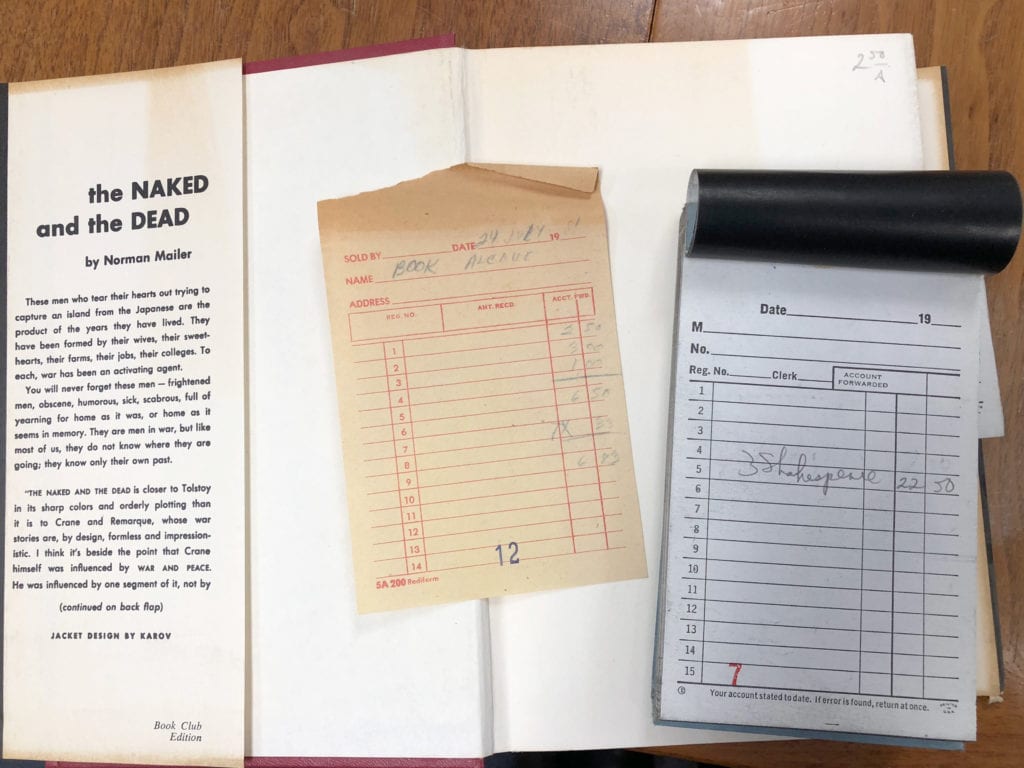
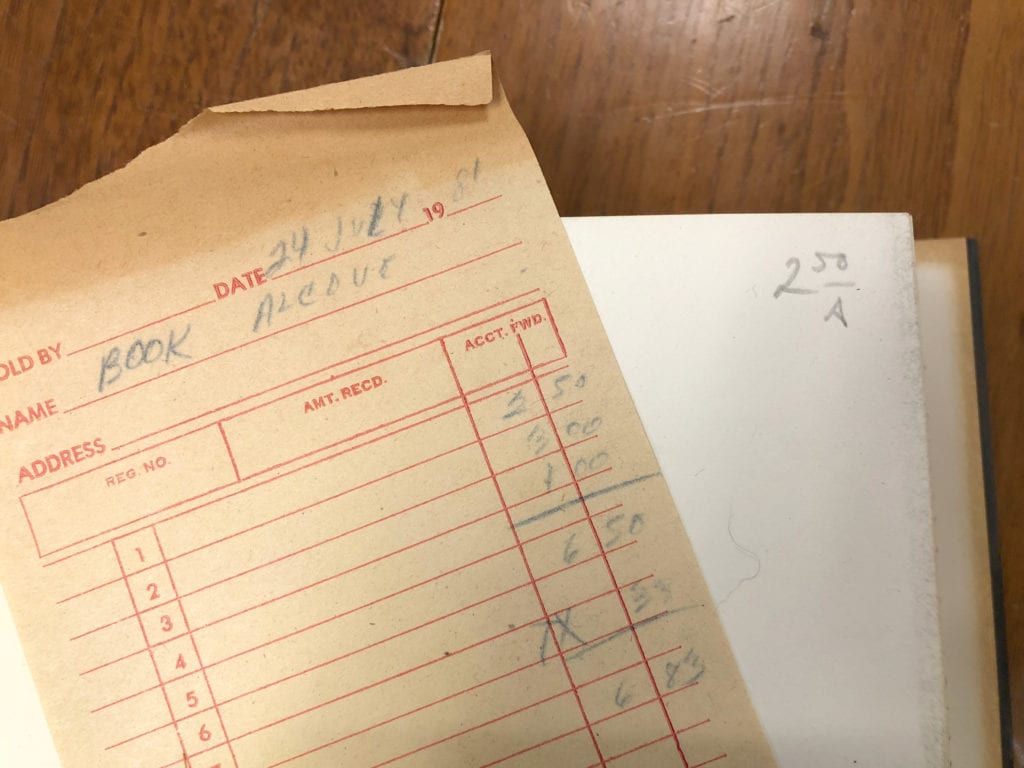
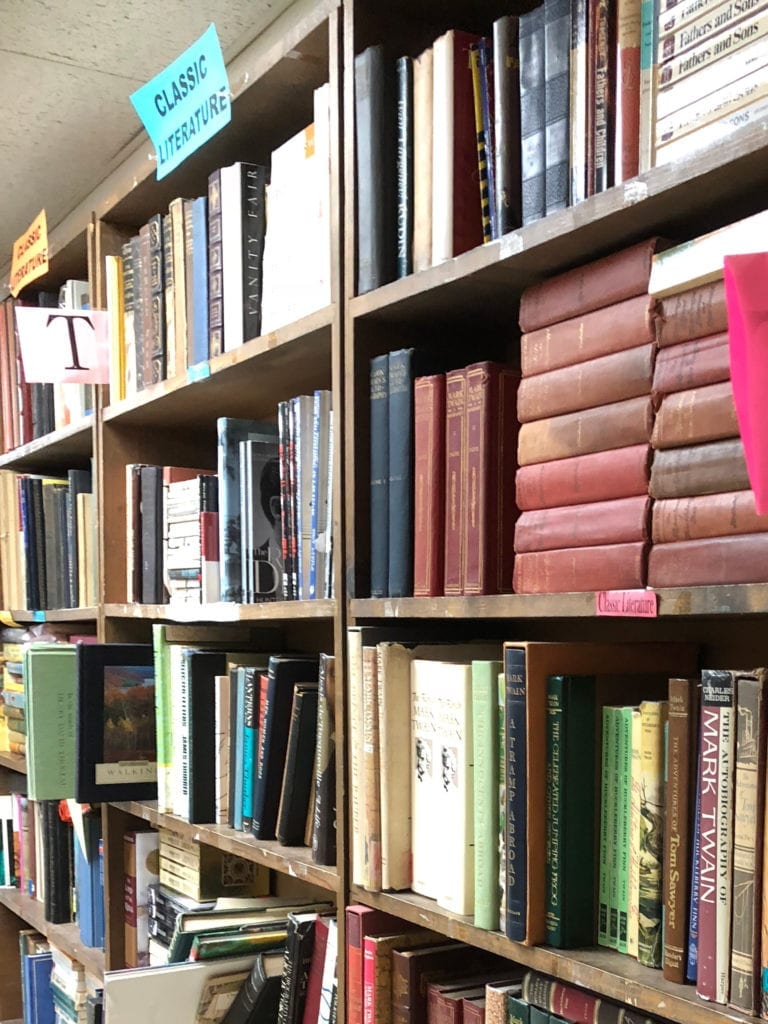
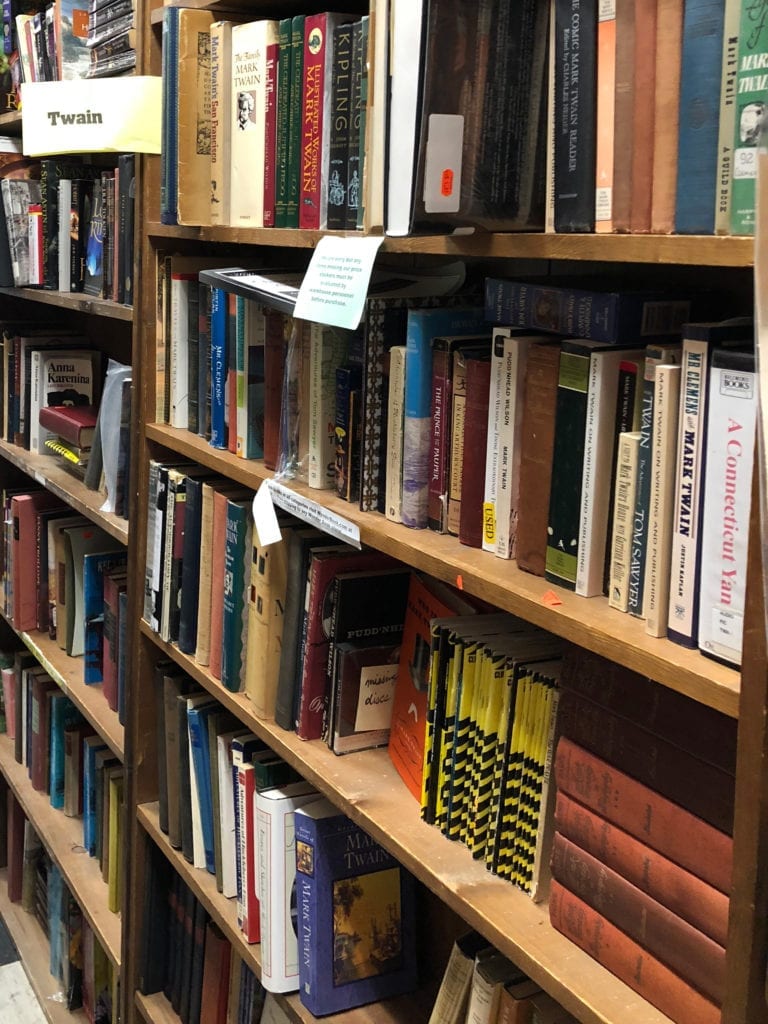
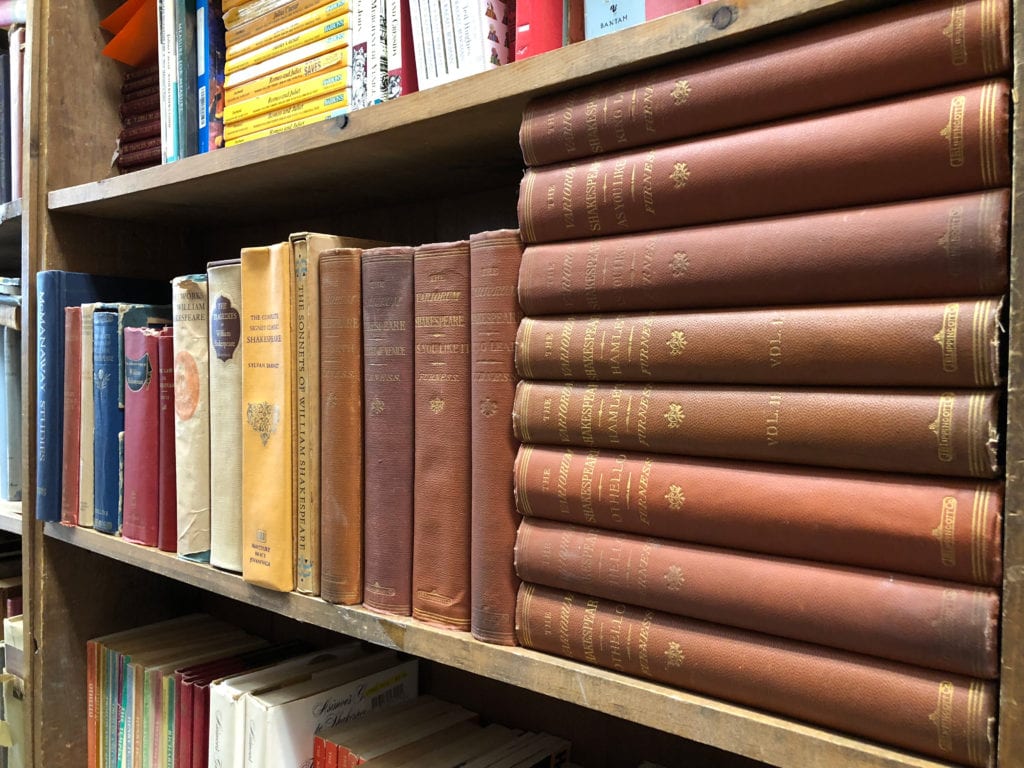
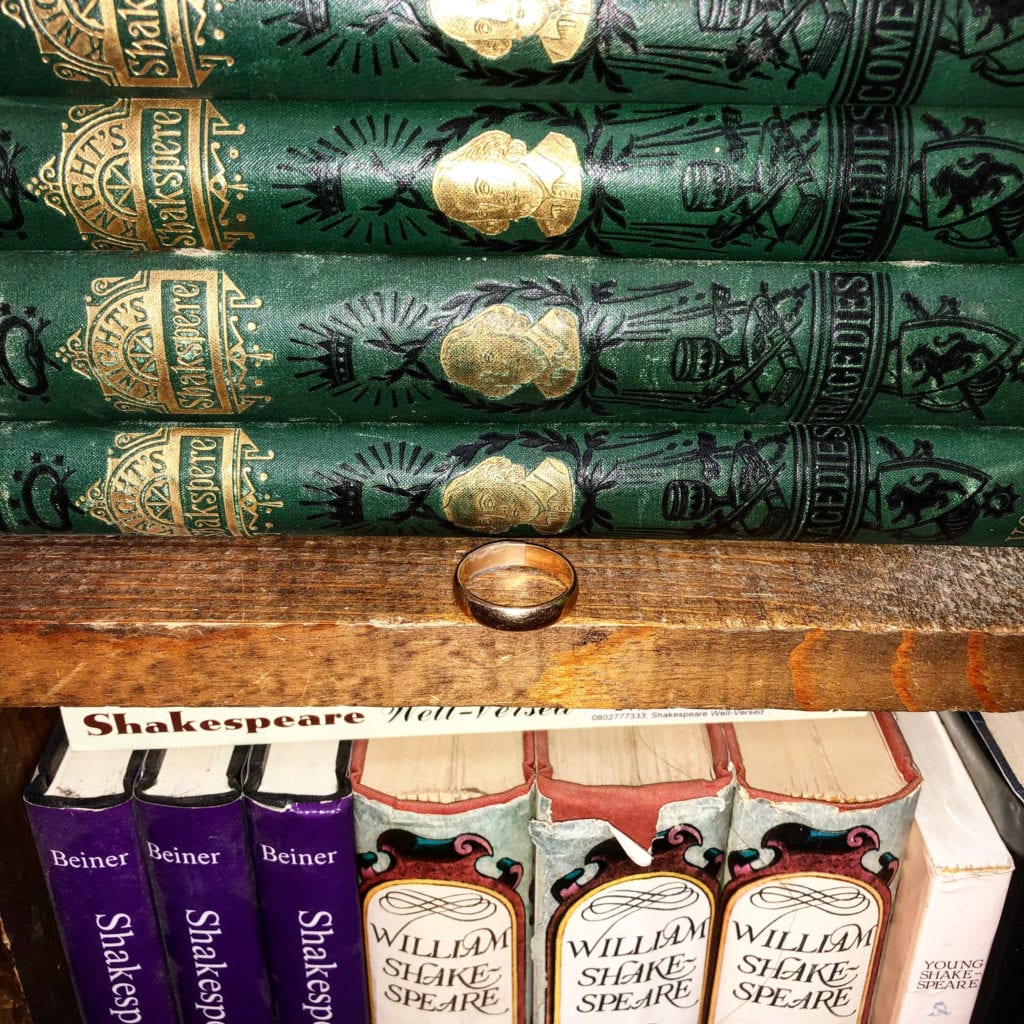
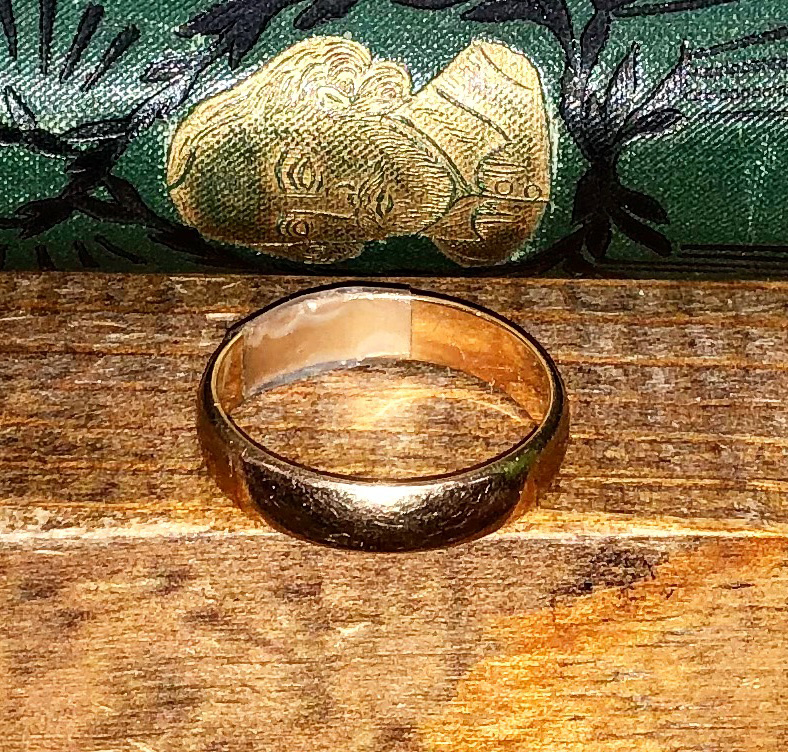
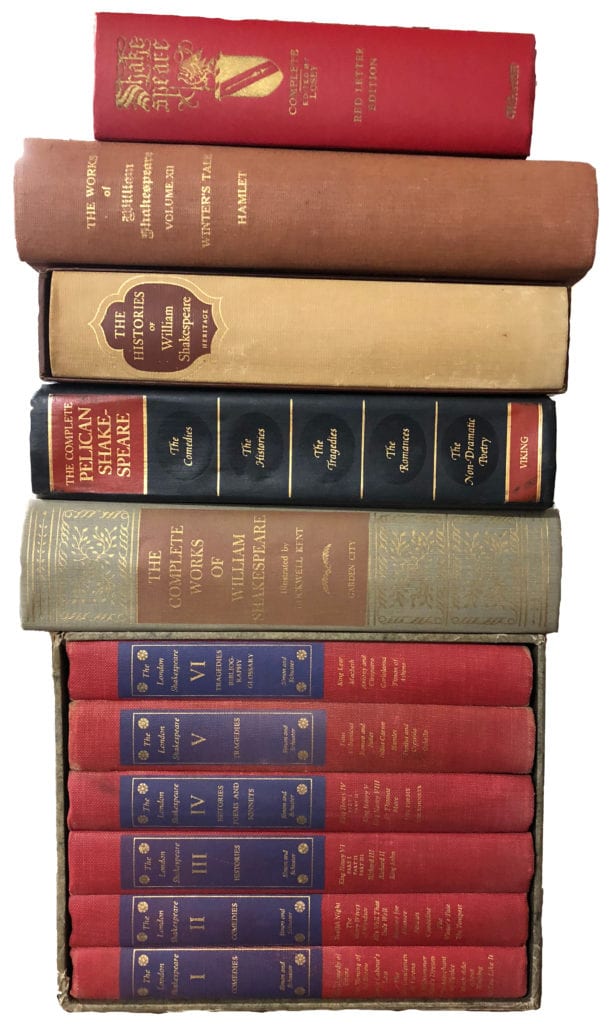
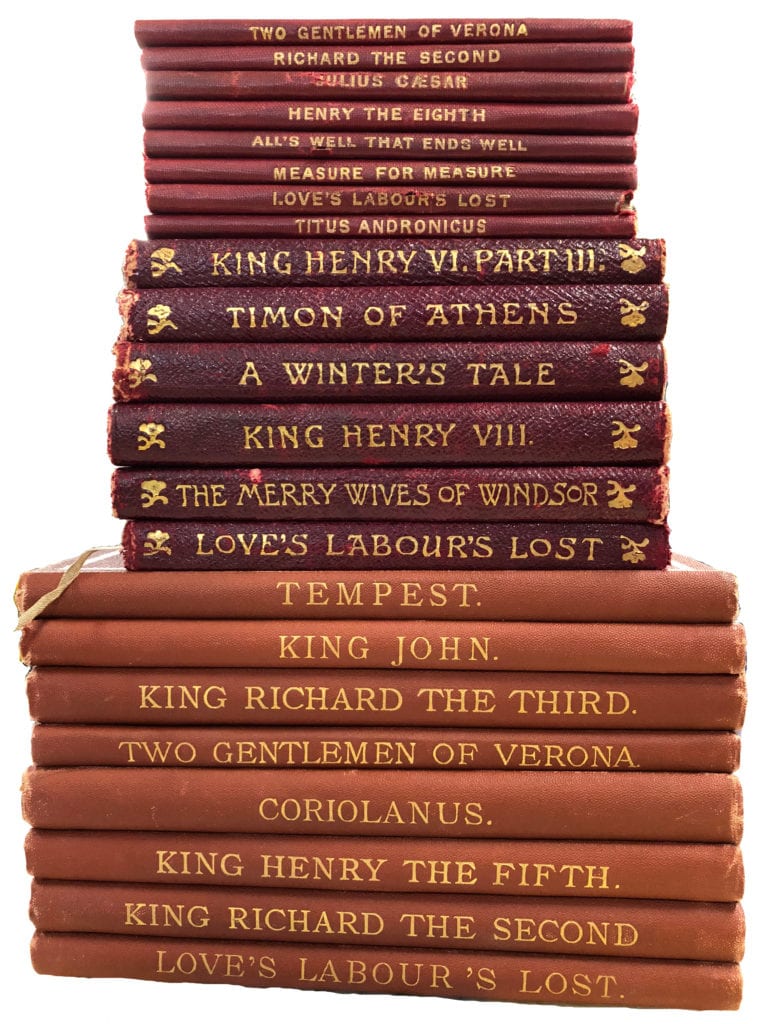
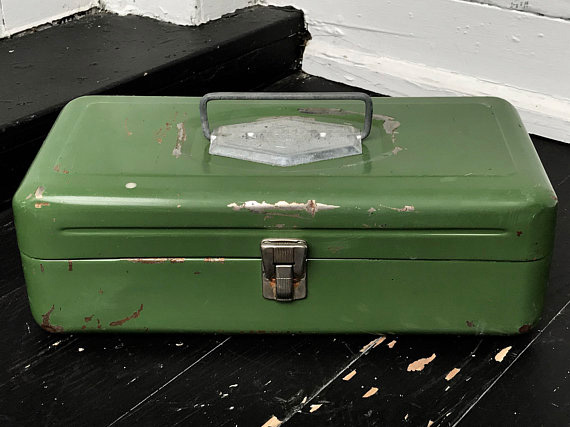
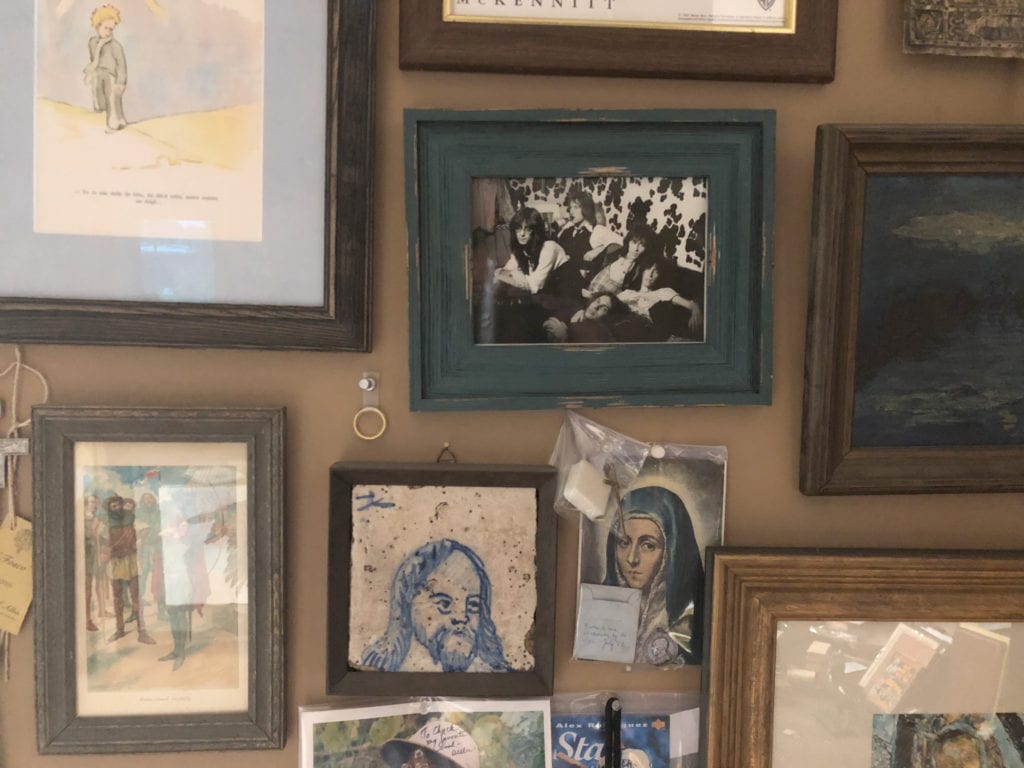
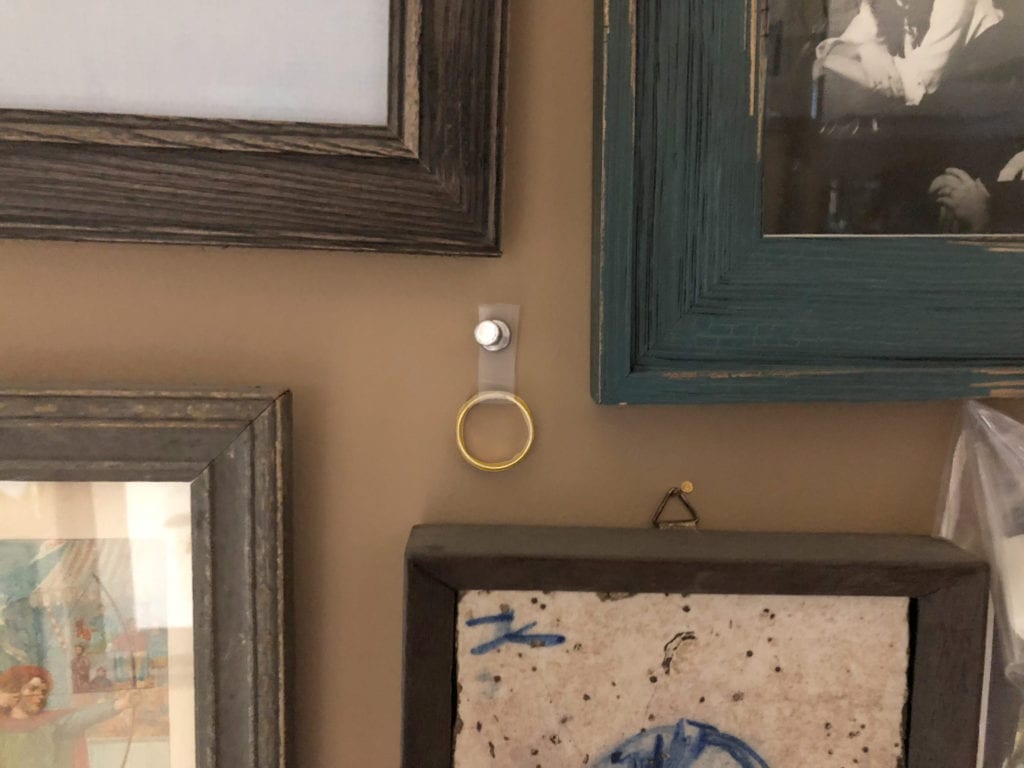
Gripping story, Chuck. Can’t wait to see how you resolve the mystery of the ring and the enigmatic old woman. Might she be your Book Muse? This could almost be the beginning of a YA fantasy. –best, michael
Thank you so much, Michael. Any advice would be greatly appreciated. I do hope the Young Bookseller discovers some interesting and intriguing answers! best, chuck
I’m Intrigued by your story and I can’t wait until part 2. I also love that it’s centered around the William Shakespeare books since I collect them. Keep up the great work.
Thank you for reading and commenting. My guess is that the Shakespeare books involved were no accident. Best, Chuck
A lovely read on a Sunday morning with coffee. Thank you!
Thank you for reading it Lizzy…and for the wonderful comment!
Best,
Chuck
[…] Read Part 1 here. […]
[…] Part 1 here and Part 2 […]
[…] Part 1 […]
[…] Part 1 […]